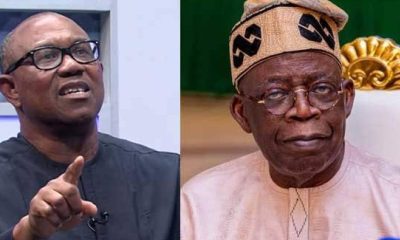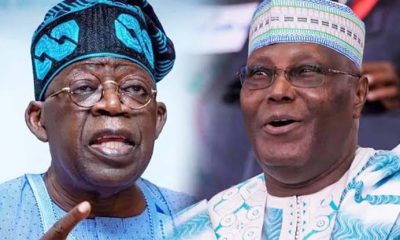
News
Niger Coup Leaders Warns ECOWAS Over Threat of Military Action

The military junta that seized power in Niger Coup last week has defied the ultimatum and sanctions imposed by the Economic Community of West African States (ECOWAS), a regional bloc that aims to promote economic and political integration among its 15 member states.
The coup leaders, led by General Abdourahmane Tchiani, also known as Omar Tchiani, and the chief of Niger’s presidential guard, have detained the democratically elected president, Mohamed Bazoum, since Wednesday, July 26, 2023.

They have declared themselves as the new authorities of the country and announced the suspension of all institutions of the republic.
In a statement broadcast on Niger national television, Colonel Amadou Abdramane, the spokesperson of the junta, warned ECOWAS not to send troops to Niger and accused the bloc of planning an “aggression” against the country in collaboration with other African and Western countries.
RELATED: ECOWAS Demands Niger Junta to Restore Democracy or Face Military Force

ECOWAS Demands Restoration of Constitutional Order in Niger
ECOWAS, which recognized Bazoum as the legitimate president of Niger, held an extraordinary summit in Abuja, Nigeria, on Sunday, July 30, 2023, to discuss the situation in Niger and find a peaceful solution to the crisis.
The summit was attended by the heads of state and government of ECOWAS member states, except for Mali, Guinea, and Burkina Faso, which are also under military rule following coups in 2020 and 2021.
The ECOWAS leaders issued a communiqué at the end of the summit, calling for the immediate release and reinstatement of Bazoum as president and head of state of Niger and for the full restoration of constitutional order in the country.
They also rejected any form of resignation that may purportedly come from Bazoum and considered his illegal detention as a hostage situation.
They held the coup leaders solely and fully responsible for his safety and security as well as those of his family and government officials.
The ECOWAS leaders gave the junta a one-week deadline to comply with their demands or face a range of stiff sanctions, including:
– Suspension of all commercial and financial transactions between ECOWAS member states and Niger
– Freeze of all service transactions including energy transactions
– Freeze of assets of Niger in ECOWAS Central Bank
– Freeze of assets of Niger state and its enterprises and parastatals in commercial banks
– Suspension of Niger from all financial assistance and transactions with all financial institutions, particularly EBID
The ECOWAS leaders also tasked all chiefs of defense staff of the member states to proceed for an emergency meeting to strategize on effective ways to implement a possible military operation to restore constitutional order in Niger³.
What is ECOWAS and What is its Role in West Africa?
ECOWAS is an African organization established by the Treaty of Lagos in May 1975 to promote economic trade, cooperation, and self-reliance among its member states.
It has a population of over 387 million people and a combined GDP of $816.4 billion.
Its main areas of focus include trade, technology, investment, free flow of ideas and movement of persons within the region.
It also serves as a peacekeeping force in the region, with member states occasionally sending joint military forces to intervene in conflicts and crises in other member states.
It has been effective in matters of security and conflict resolution, with the establishment of ECOMOG and the Multinational Joint Task Force against Boko Haram.
It has also created a framework mechanism for responding to conflict prevention, resolution, and peacekeeping.
ECOWAS has three official languages: English, French, and Portuguese.
Its headquarters is in Abuja, Nigeria.




























